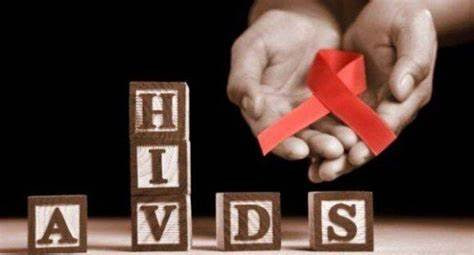Adekunle Adeleke

ABEOKUTA, Nigeria – Approximately 30,350 people are currently receiving HIV/AIDS treatment in Nigeria’s southwestern Ogun state, an official said Monday.
Ogun State Commissioner for Health Dr Tomi Coker, who made this known, highlighted the urgent need to focus on preventing mother-to-child transmission and ensuring that children living with HIV have access to the care and treatment they need.
Coker made these statements during a press briefing organised by the Ogun State Agency for the Control of AIDS at the conference room of the Ministry of Information and Strategy, Governor’s Office, Oke-Mosan, Abeokuta, to commemorate this year’s World AIDS Day. The theme for this year’s observance was “Take The Right Path: Sustain HIV Response, Stop HIV Among Children.”
The official noted that to sustain the current momentum and achieve zero cases of HIV/AIDS by 2030, “increasing funding for HIV programmes to ensure their sustainability must be prioritised.”
According to Coker, the state is committed to the global goal of eradicating HIV/AIDS by 2030 and has therefore called on the public to embrace responsible sexual behaviour, use condoms, and undergo regular testing to determine their HIV status.
HIV testing and treatment in the state are free of charge, she said.
Coker said, “HIV/AIDS continues to pose a significant public health challenge in Nigeria, with an estimated 1.9 million people living with the virus as of 2020. In Ogun State, about 30,350 individuals are receiving HIV treatment, with children making up approximately 2% of this population.”
She added that winning the battle against HIV/AIDS requires a comprehensive approach, involving prevention, testing, treatment, and support services.
“Prevention efforts must include widespread education, the promotion of safe practices such as condom use, and ensuring access to testing services,” Coker said.
“With a prevalence rate of 1.6% (NAIIS 2018), we are steadily progressing towards achieving the UNAIDS 95-95-95 targets—where 95% of people living with HIV know their status, 95% of those diagnosed are on treatment, and 95% of those on treatment have achieved viral suppression. Currently, Ogun State stands at 95%, 76%, and 83% across the three targets.”
The commissioner also highlighted several key initiatives taken by the state government to tackle the scourge, such as expanding comprehensive treatment sites for HIV/AIDS from 22 to 43, providing MPIMA machines for early infant diagnosis of HIV, and engaging 150 mentor mothers across the 20 LGAs to provide peer support and encourage adherence. Traditional birth attendants were also trained to strengthen efforts in combating the disease in the state.
She added that addressing the social determinants of health, including poverty, stigma, and gender inequality, is essential, as these factors contribute to the spread of HIV.
Coker also called for stronger community engagement to empower individuals to make informed health decisions that could help prevent the transmission of the virus.
